Enroll Today!
Not yet signed up for IntellectAbility’s ABMS Portfolio Program Sponsor Activity, Improving Care for Patients with Intellectual and Developmental Disabilities (IDD)? Register here to get started and make a difference.
Enhance your practice and care of your patients with IntellectAbility’s ABMS Portfolio Program Sponsor Activity
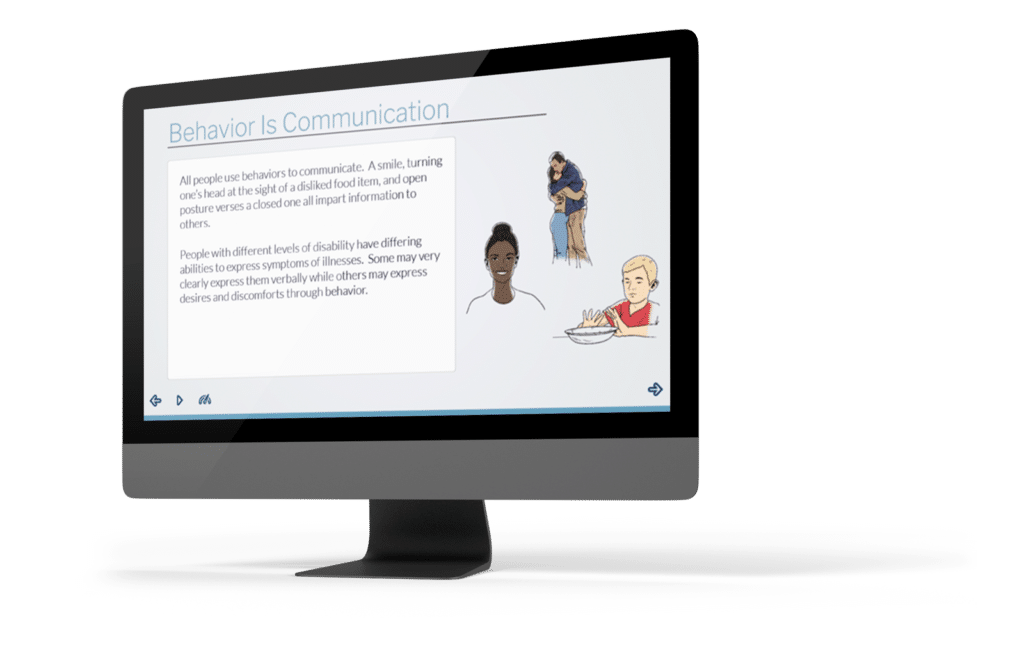
ABMS Portfolio Program Overview
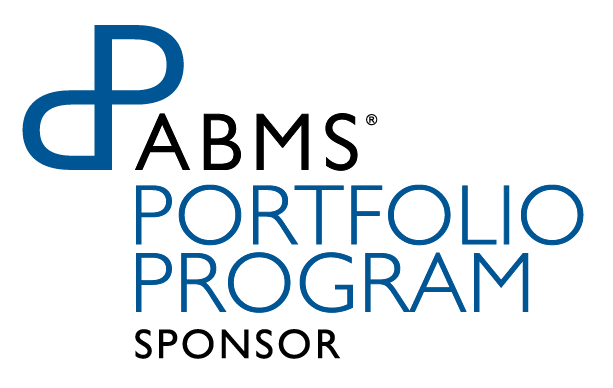
The American Board of Medical Specialties Portfolio Program™ (ABMS Portfolio Program) has granted IntellectAbility Portfolio Program Sponsor status, allowing us to review and approve quality and safety activities for Maintenance of Certification (MOC) credit from a participating ABMS Member Board or the National Commission on Certification of Physician Assistants (NCCPA).
As a designated ABMS Portfolio Program Sponsor, IntellectAbility takes care of the essential administrative tasks related to credit confirmation:
How to Get Involved

Participation in the ABMS Portfolio Program recognizes activities designed to improve your practice and the care of your patients. IntellectAbility’s Sponsor Activity, Improving Care for Patients with Intellectual and Developmental Disabilities (IDD), is approved for continuing certification (MOC) credit and designed to expand clinicians’ knowledge of IDD healthcare and increase confidence in their ability to treat people in this patient population.
Participation in the Improving Care for Patients with Intellectual and Developmental Disabilities (IDD) QI activity requires access to IntellectAbility’s Curriculum in IDD Healthcare eLearning course. This course teaches essential IDD healthcare practices to improve outcomes, reduce suffering, and prevent avoidable deaths. The American Association of Family Physicians (AAFP) has approved this training for 5.00 CMEs.
Participants must either purchase access to the Curriculum in IDD Healthcare eLearning course or have been granted free access through a participating entity. There is no additional cost to receive ABMS Portfolio Program credit.
Click here to learn more about Sponsor Activity eligibility, participation, and requirements.
Questions? Email ABMSPPSponsor (at) ReplacingRisk.com.
Not yet signed up for IntellectAbility’s ABMS Portfolio Program Sponsor Activity, Improving Care for Patients with Intellectual and Developmental Disabilities (IDD)? Register here to get started and make a difference.
About the Curriculum in IDD Healthcare eLearn Course
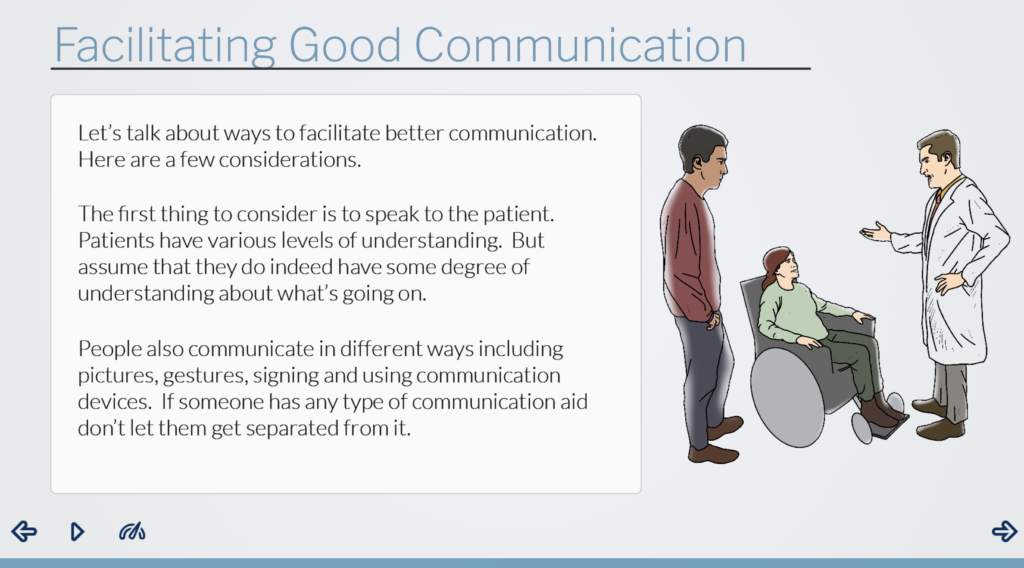
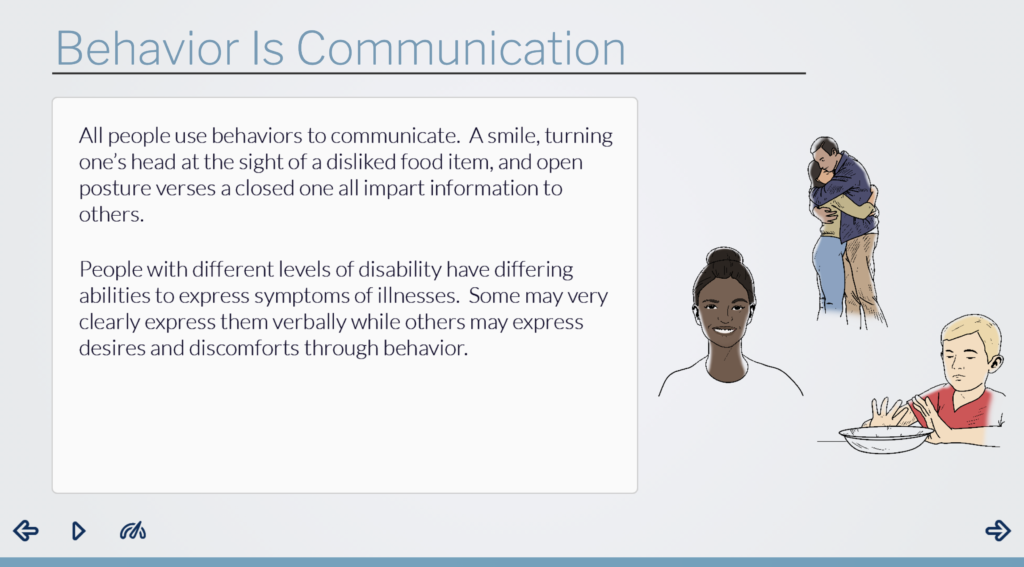
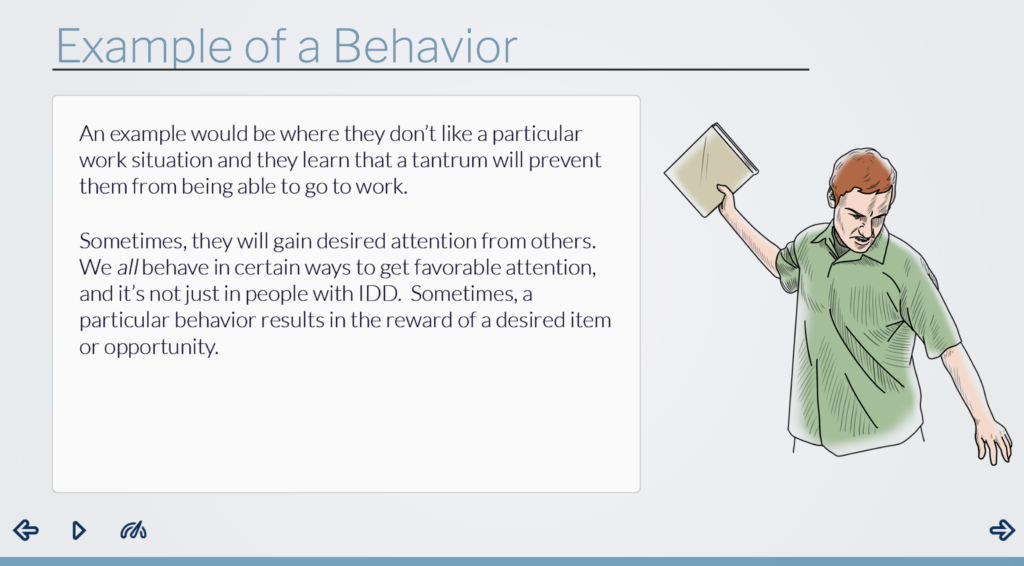
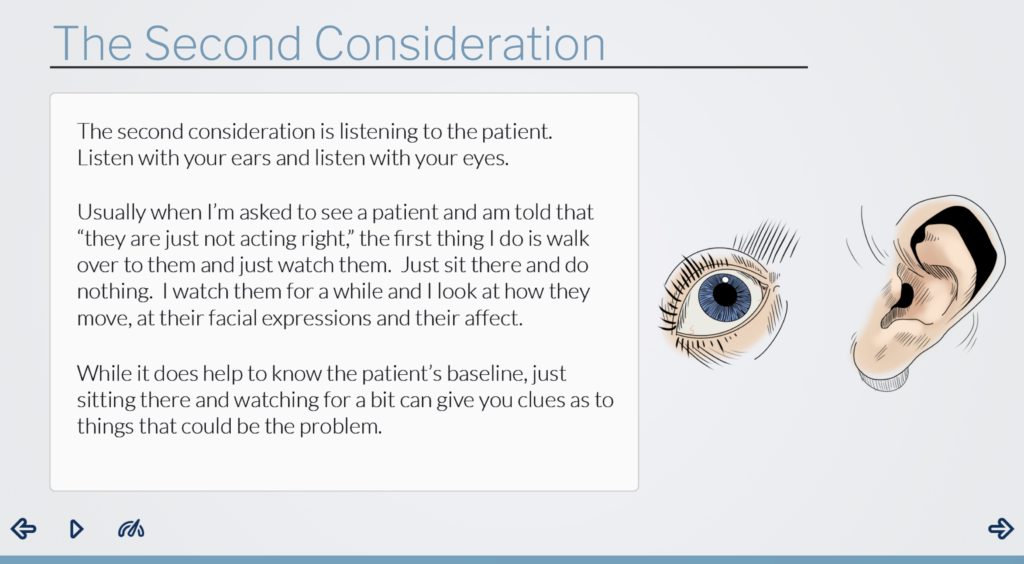
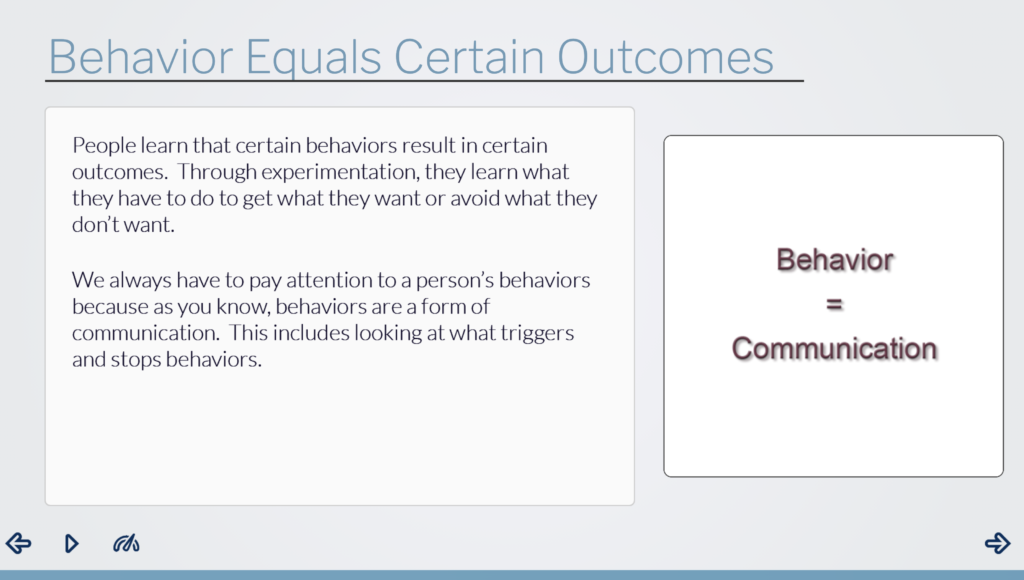
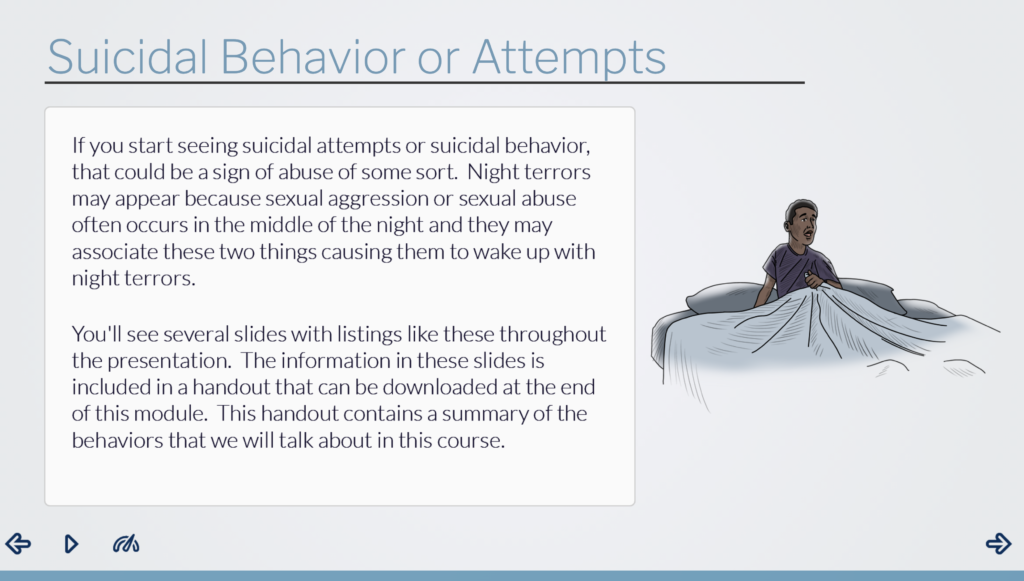
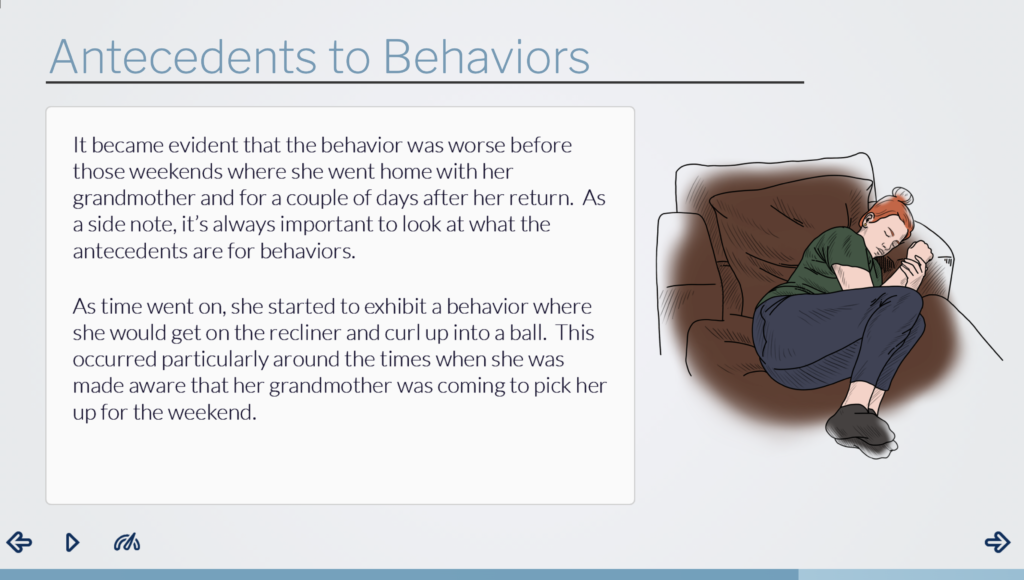
Synopsis by Module
The Curriculum in IDD Healthcare eLearn Course consists of 6 modules that teach practical skills that improve clinical competence in the provision of healthcare to people with IDD.
Numerous real-world case studies are used to illustrate concepts that help students and clinicians at any level to improve their skill set and provide competent, compassionate healthcare to people with complex neurodevelopmental, medical, and mental health conditions.
Module Length: 37 Minutes
Diagnosis, causes, prevalence, and classifications are covered. The history of IDD treatment and the reasons for the move from institutional to community-based support are covered, and much more.
Module Length: 1 Hour 2 Minutes
A discussion of common medical issues, their presentations and general treatment options are covered. This discussion includes the “Fatal 5+” – Constipation, Aspiration, Dehydration, Seizures and Sepsis, as well as other topics like GERD, osteoporosis, contraception, feeding tubes, wheelchairs, end-of-life considerations and basic dental issues.
Using real-life case studies, this module effectively illustrates how numerous challenging behaviors may point to specific, underlying medical conditions in people with IDD. Topics include head-banging, refusing meals, hand-mouth behavior, aggressiveness in particular situations, resisting lying down or sleeping, pica and many more.
Module Length: 31 Minutes
This talk covers topics including understanding the differing baselines of people with IDD, fostering good communication between healthcare providers and support staff, speaking TO the person who is the patient rather than directing communication to the support staff, how to garner the most helpful information from support staff, and understanding the structure of the team model of support.
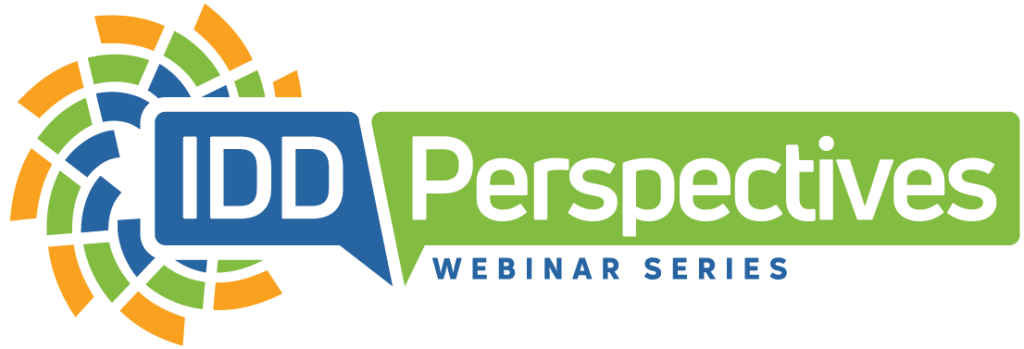
Join us for a discussion on the often-overlooked topic of reproductive health for women with IDD, emphasizing empowerment, education, and access to quality healthcare.

| | Thank you for Signing Up |

